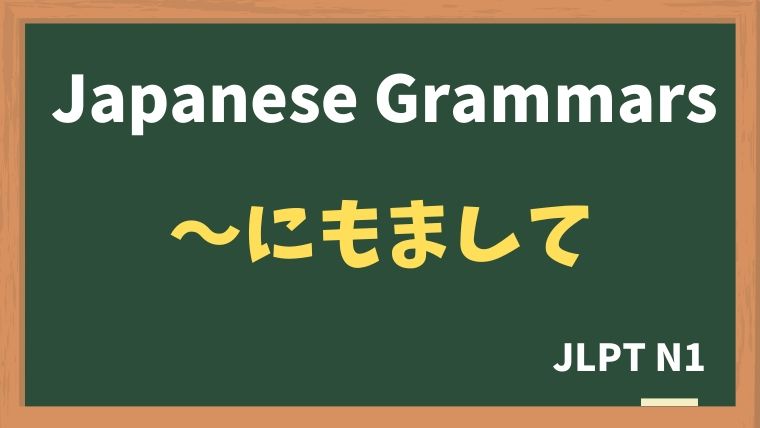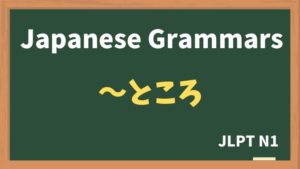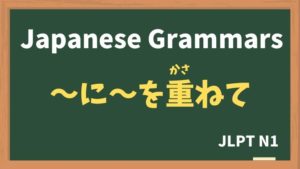
Explanation:〜にもまして
Meaning
"〜よりも、もっと / 〜もそうだが、それ以上に”
"more so than"
Used to indicate that something exceeds or is greater than another thing that is already at a high level. It emphasizes comparison, suggesting that the subject in question is more significant, important, or extreme than what was mentioned before or compared to. It can be translated as "more than," "even more than," or "above all" in English.
Form
N + にもまして
Interrogative(何・だれ・いつ・どこ) + にもまして
fa-check-circlePoints
- Comparison: It is used to compare two things, with the second being emphasized as surpassing or exceeding the first.
- Emphasizing Importance or Degree: The phrase highlights that the current situation, feeling, or quality is at a higher degree than what was initially stated.
- Often used with emotions or qualities: It is frequently employed to compare emotions, qualities, or situations.
JLPT Level
N1
Sample sentenes
今年の夏は去年にもまして、暑いね。
This summer is even hotter than last year.
手術をしたのに、以前にもまして悪くなっている。
Despite having had surgery, it's gotten worse than before.
彼女はいつにもまして、化粧が濃い。
Her makeup is even heavier than usual.
今年のJLPT N1の試験は前にもまして難しかった。
This year's JLPT N1 exam was more difficult than before.
彼は酔っぱらうと、いつにもましてよくしゃべる。
When he's drunk, he talks even more than usual.






